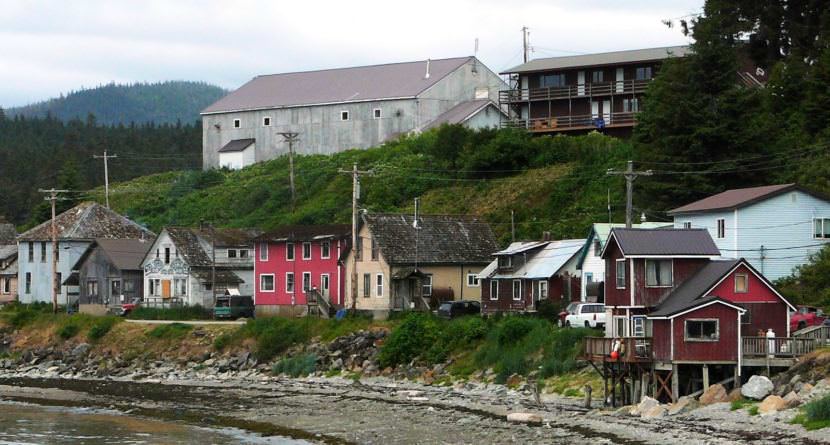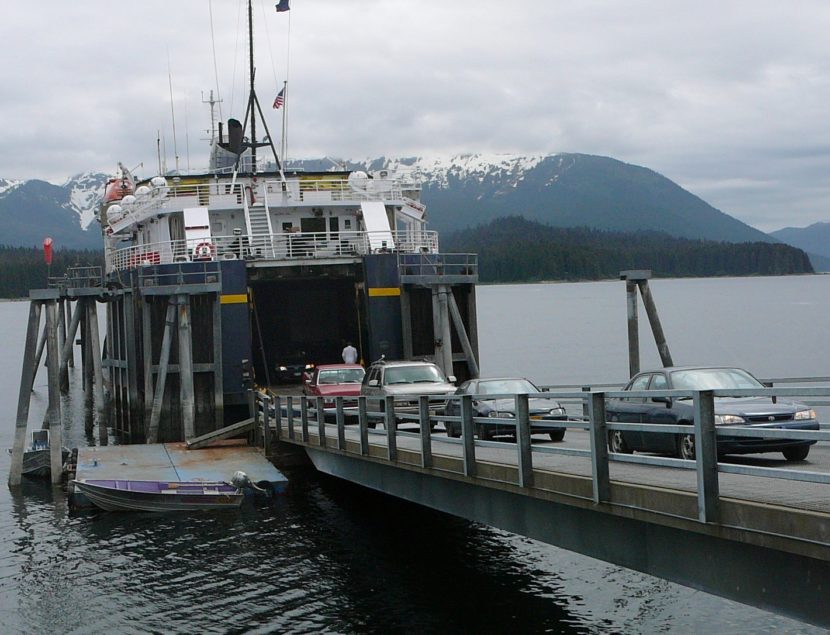
In many Alaska coastal communities, ferry service is more than just a transportation link. It can also be a form of survival.
In Angoon, the ferry is the only way that some children can eat at school on a daily basis. But now that program is at risk with cutbacks to regular winter ferry service.
Mayor Joshua Bowen has a 9-year-old boy and 8-year-old girl attending Angoon school. Instead of eating breakfast at home, they usually leave a little early.
“They go to breakfast club every morning down at the school which they do every morning before school,” Bowen said. “And then, they have lunch at the school with the school’s lunch program.”
Bowen said those free or low-cost lunches are occasionally supplemented with donated subsistence foods.
“People bring halibut and salmon and deer,” Bowen said. “And, just everything.”
About 70 students attend the K-12 Angoon school. Almost all of them — 98% — get free or low-cost breakfasts and lunches through federally subsidized programs.
“Well, just based on the number of students we have eating and having them eating the two meals, it’s a pretty significant part of their day,” said Bruce Houck, superintendent of the Chatham School District in Angoon.
Houck said the district stocked up on school meal supplies earlier. But he anticipates running out before Christmas.
There’s only one store in Angoon. No restaurants, no barge dock and no airstrip.
When they need to stock up for school meals, Houck said they would just put a truck on a state ferry to Juneau. But their options are limited with cutbacks in winter ferry service and a ferry dock ramp that needs repairs.
Floatplanes are an option. But Houck said they’re much more expensive. The cost-per-pound can be more than four times higher than the ferry. That would exceed their reimbursement from the federal government.
Flights are also dependent on weather.

Houck sounded the alarm in a Dec. 2 opinion piece in the Anchorage Daily News. He said he talked to state and federal officials and got no action.
“Nothing has changed,” Houck said. “We’re still in the same predicament that we were prior.”
Joshua Bowen, the dad with two children who eat at school, sees how ferry service cuts has led to food becoming unavailable in town. It’s not just the absence of soda and chips at the community’s only store. Basic essentials are also in short supply.
“So, yeah, eggs, bread, milk,” Bowen said. “They ran out of milk a couple weeks ago.”
Bowen works part time as the power plant operator. But, as the mayor for the 460 people in Angoon, he said he knows some children are probably getting their biggest meals at school.
“Losing the continued ferry service and the availability of food every week or month or whenever they would go and do it, it’s got me worried about some kids here in town that just might not be able to eat,” Bowen said. “You know, (it’s) such a basic thing.”
If the school meal program shut down or ran out of food, Bowen says his kids would be alright. But it’s not the same for everybody. He said not every family has the resources to feed their children as much as others.
The state ferry Tazlina was expected to stop in Angoon on December 13 and 15. The state Department of Transportation said they planned a workaround at the ferry dock to allow loading and unloading of vehicles.